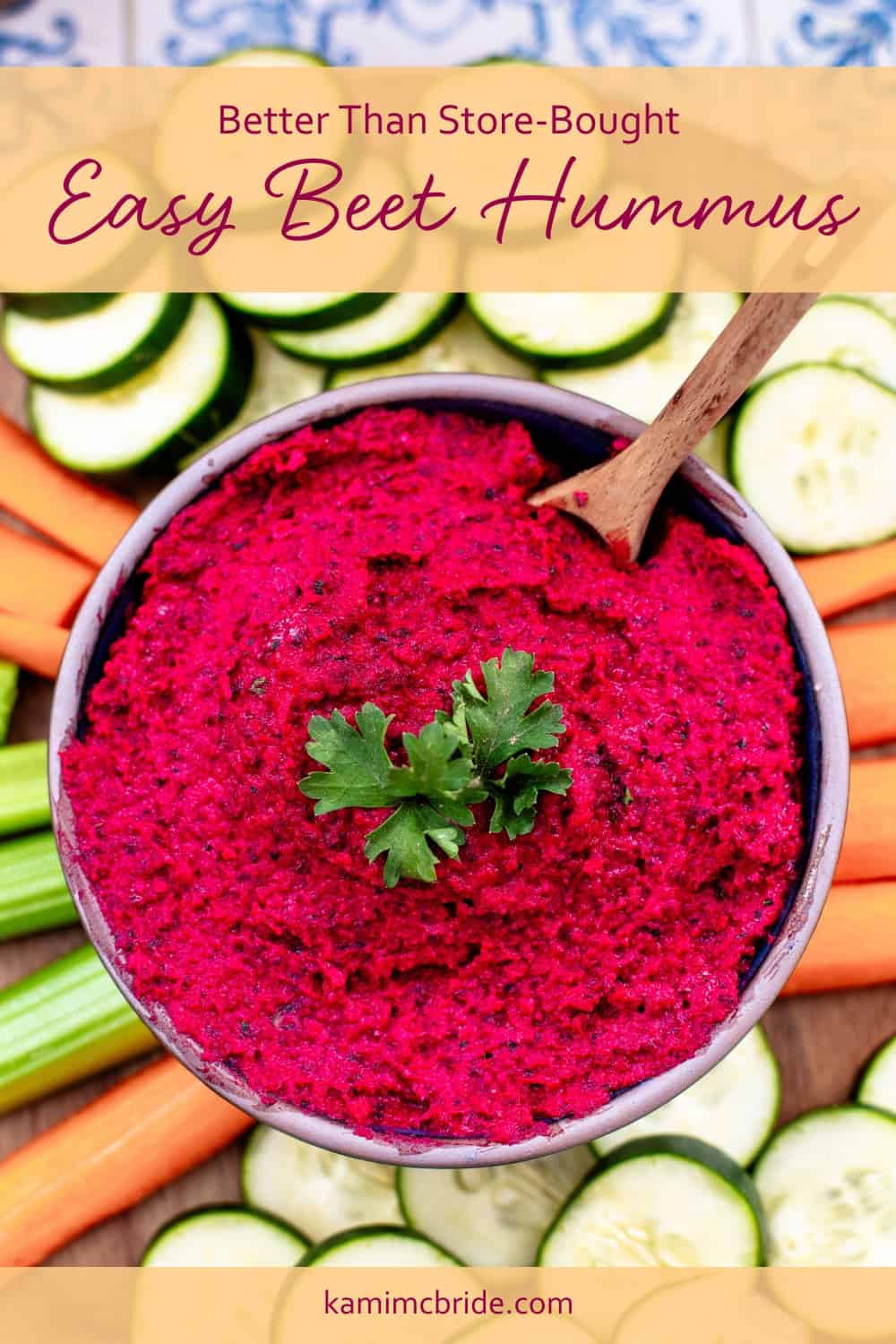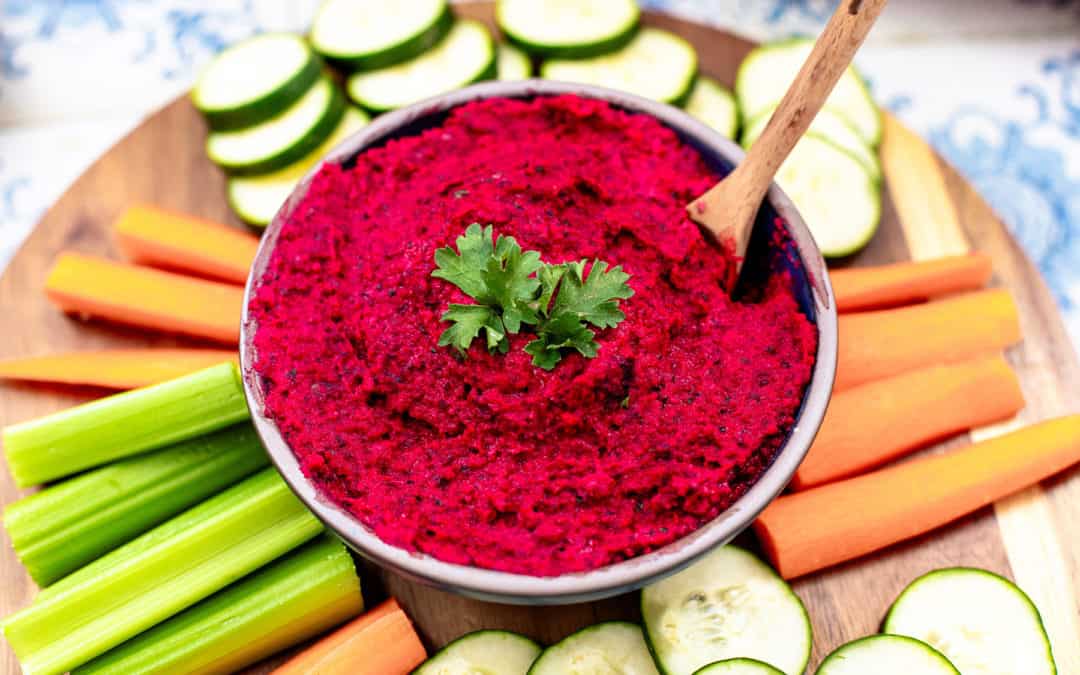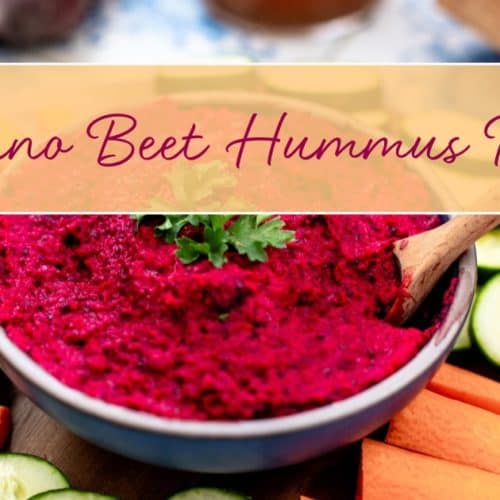When I’m in the mood for an afternoon snack, one thing I reach for is hummus. Its creamy texture and versatile flavors make it a go-to choice for a quick and satisfying treat. Plus, this delightful dip is an excellent vehicle for bringing more herbs—such as oregano, thyme, rosemary, chives and garlic—into your daily meals. I love how many different herbs you can sneak into this simple snack! Before we dive into my favorite Oregano Beet Hummus recipe, let’s explore the roots of this beloved dish.
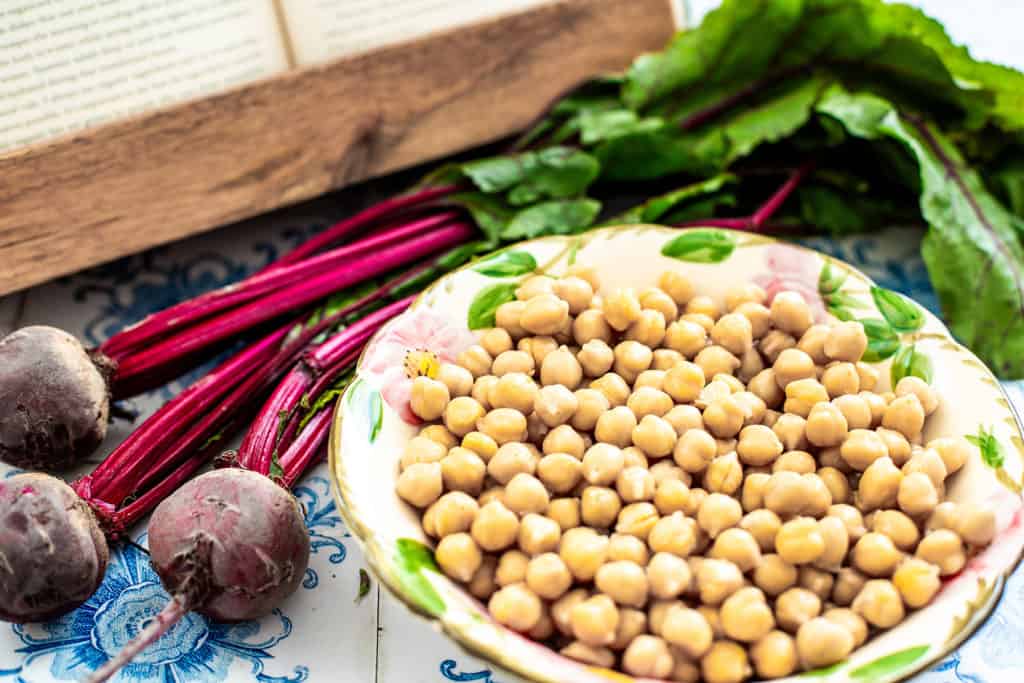
What is Hummus and Where Does it Come From?
Hummus, a staple in Middle Eastern cuisine, is a delectable spread made from humble yet nutritious ingredients. The core components often include chickpeas, tahini, olive oil, lemon juice, and garlic, blended to a velvety consistency.
Hummus has a rich history dating back thousands of years, with its exact origins often sparking friendly debates among food enthusiasts. What remains indisputable is its global popularity today, transcending cultural boundaries and finding a place on tables worldwide. Whether enjoyed with pita bread, fresh veggies, or as a flavorful addition to the charcuterie board, hummus has become a symbol of wholesome eating.

Opt in for Homemade Hummus!
I know, I get it. I am busy too and it seems so convenient to pick up a tub of hummus at the store! But this is one snack that is easy to make and you don’t have to spend forever crafting it fresh at home. Plus, while purchasing pre-made hummus from the store may seem like an innocent choice, a study done by the Environmental Working Group revealed that a staggering 90% of store-bought hummus contains glyphosate. Its widespread presence in store-bought hummus is alarming because of its health and environmental implications.
The World Health Organization’s International Agency for Research on Cancer has classified glyphosate as a probable human carcinogen, linking it to an increased risk of certain cancers. Additionally, this herbicide has been associated with disruptions in the endocrine system and other adverse health effects, not to mention poisoning water.
“By opting to make this homemade Oregano Beet Hummus recipe, you take control, ensuring the use of fresh, high-quality ingredients and avoiding unnecessary additives.”
But glyphosate is not the only factor to consider when reaching for store-bought hummus—commercial varieties often harbor additional drawbacks. One prevalent issue is the added sugars. Just try and find hummus at the store without a bunch of sugar in it! Additionally, mass-produced hummus can compromise on ingredient quality to prioritize convenience.
By opting to make this homemade Oregano Beet Hummus recipe, you take control, ensuring the use of fresh, high-quality ingredients and avoiding unnecessary additives. Crafting your own hummus is easy and not only helps eliminate health-related worries but allows you to enjoy a personalized, herb-filled snack that caters to both your taste buds and dietary preferences.
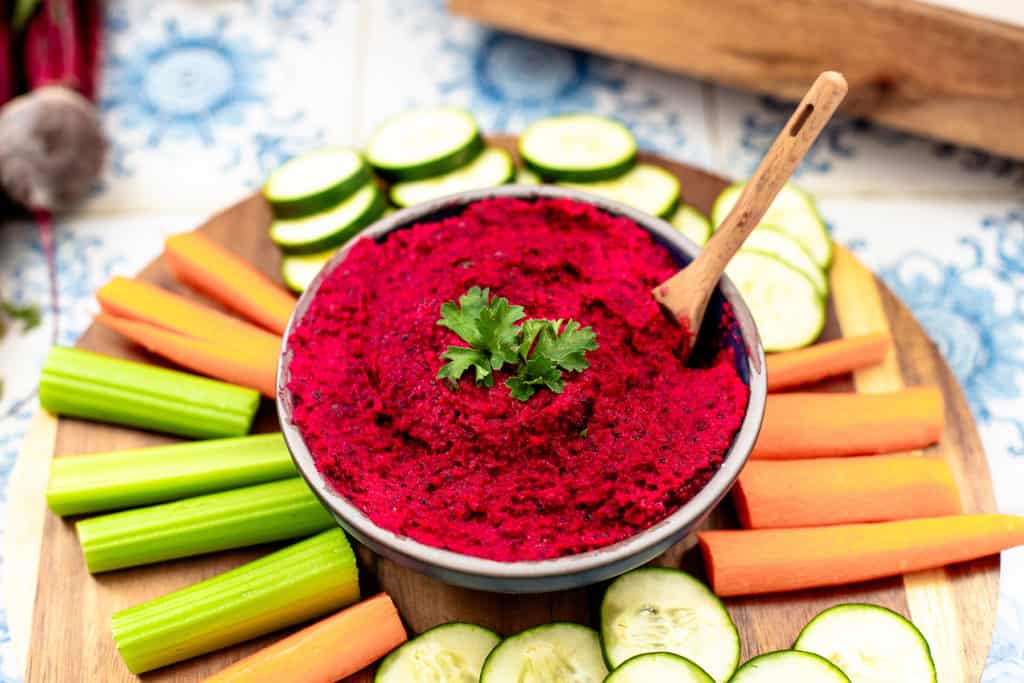
A Flavor-Packed Hummus Made from Simple Ingredients
My Oregano Beet Hummus recipe embraces simplicity and the goodness of nourishing ingredients. Every spoonful offers a burst of delectable flavor, proving that indulgence can coexist harmoniously with nutrition. Plus, people just love when you serve something red to eat!
Beets
Don’t underestimate the humble beet! Packed with essential vitamins, minerals, and antioxidants, beets promote cardiovascular health, aid digestion with their fiber content, and provide a natural source of nitrates for improved blood flow and exercise performance. Rich in folate and boasting anti-inflammatory properties, these vibrant root vegetables are a nutritional powerhouse.
Oregano (Origanum vulgare)
Beyond its aromatic and culinary appeal, oregano boasts a range of health benefits. Full of antioxidants, this herb contributes to the body’s defense against oxidative stress and inflammation. Oregano is known for its antimicrobial properties, potentially aiding in fighting off harmful bacteria. It also contains essential compounds that may bolster the immune system.
Chickpeas
Chickpeas, with their fiber and protein content, contribute to an enjoyable snack that supports digestive health. The high protein content makes chickpeas an excellent plant-based protein source. Rich in vitamins and minerals, including folate, iron, and manganese, chickpeas play a role in promoting heart health, managing blood sugar levels, and supporting energy production.
Oregano Beet Hummus Recipe
Ingredients
- 3 cups cooked chickpeas (800 g)
- 2 medium-sized beets, roasted, peeled, and chopped
- 1 cup vegetable or bone broth (250 ml)
- 1/4 cup fresh lemon juice (60 ml)
- 3 tbsp olive oil (45 ml)
- 2 tbsp tahini (36 g)
- 1/2 cup chopped fresh parsley (15 g)
- 1/4 cup chopped fresh oregano (8 g)
- 2 cloves garlic, peeled
- 1 tsp salt (6 g)
- Fresh oregano and parsley, for garnishing
- Sliced vegetables such as carrots, celery, and cucumbers for serving
Instructions
- Combine all the ingredients in the bowl of a food processor and blend until smooth.
- Taste and add more garlic or lemon juice, if you like. You can also add a little water for a thinner consistency. Blend until smooth.
- Garnish with fresh oregano and parsley and serve with sliced vegetables.
Dip Into Your New Favorite Snack
As you savor this balanced blend of taste and health, remember that every bite is a conscious choice toward nourishing your body and delighting your senses. Here’s to the joy of homemade hummus, where flavor and well-being come together in perfect harmony.
Excited about recipes like this one? Consider enrolling in the My Herbal Kitchen online course to discover the power of medicinal meals with me.
Here is another favorite oregano filled recipe you might enjoy.
Oregano Pesto Recipe
